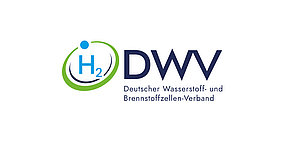
Guest article by the German Hydrogen and Fuel Cell Association e.V. (DWV)
Green hydrogen is the energy carrier of the 21st century. It is the guarantor of an emission-free, resilient and economical energy system. It is now necessary to create the regulatory framework for a prosperous hydrogen economy.
Green hydrogen offers unique industrial policy opportunities and stands for climate protection, cross-generational social justice and economic prosperity. Tens of thousands of jobs can be created in Germany by 2030 if fuel cell and electrolysis manufacturing facilities are established.
The chemical and steel industries will depend on green hydrogen in the future to meet climate targets. In the transportation and heating sectors, hydrogen and fuel cells are the zero-emission solutions that will meet usage demands. It is also important to leave behind the ideological resistance to synthetic fuels for the existing fleet. The truth is that this is the only way to achieve the 2030 transport climate targets.
Clear legal framework conditions for the national expansion of renewable energies and green hydrogen generation plants are absolutely essential for this. The same applies to the expansion and conversion of the gas infrastructure, the admixture of hydrogen and pure hydrogen transport.
Germany will also be dependent on importing enormous quantities of green hydrogen. Therefore, it is now necessary to politically shape a European hydrogen union and international hydrogen energy partnerships.
Green hydrogen has the potential to combine climate protection and economic prosperity like no other energy carrier. It is important to act now!
Appeal to the German government
The 2050 climate targets pose major challenges not only to Germany. Globally, all industrialized nations must ensure a secure and cost-effective renewable energy supply for citizens and the economy. Hydrogen produced with renewable energy, as an energy carrier of the 21st century, together with other renewable primary energies, offers a stable basis for the emission-free energy economy of the future. However, these challenges also mean enormous economic opportunities for Germany as an industrial location. Hydrogen produced with renewable energies makes it possible to achieve climate neutrality in 2045 and create sustainable jobs.
The restructuring of the German and also the European energy industry must be initiated in the short term in order to secure investments and achieve economic success. As an industrial location, Germany must emerge strengthened from the transformation to a climate-neutral energy industry. This requires an appropriately secure and forward-looking investment framework. The market potential for the German mechanical engineering sector is so significant that a modern and socially responsible economy must shape this transformation process ahead of us in terms of energy, economic and industrial policy. The new German government has it in its hands to ensure that our citizens benefit from a renewed German economic miracle.
An electrolysis capacity of 40 GW in Europe in 2030 is absolutely realistic. Worldwide, demand is even expected to reach 100 GW. In addition, considerable market potential is needed in fuel cells or plants for the production of renewable electricity-based fuels. Added to this is the need for renewable energy plants. For Germany to be able to participate in these economic opportunities in an appropriate manner, a realistic, socially just transformation process for a climate-neutral energy industry, which is secure in terms of supply, must be actively shaped politically in the coming legislative period.
In the medium term, this requires both a real economic environment that gives climate-friendly business models an advantage over fossil alternatives and an attractive financing ecosystem in which appropriate venture capital is available.
The political and regulatory conditions for a hydrogen economy and industry of tomorrow must be created now. The new German government must set ambitious but also binding targets.
About DWV
The German Hydrogen and Fuel Cell Association e.V. (Deutscher Wasserstoff- und Brennstoffzellen-Verband e.V. DWV) has been advocating for a sustainable hydrogen and fuel cell industry since 1996.
The development of a green hydrogen market economy as part of a sustainable energy supply is the focus of DWV. With our commitment, we contribute to efficiently achieving the climate goals - while at the same time maintaining the security of supply and Germany as an industrial location. Hydrogen produced with renewable energies plays a decisive role in this.
The association's activities focus on implementing and optimizing the necessary market, technological and regulatory framework for the hydrogen economy in the areas of plant construction, generation, transport infrastructure and application technologies. To solve these challenges globally, DWV is also committed to international sustainable cooperation. Our 400 personal members and over 140 member institutions and companies represent more than 1.5 million jobs nationwide; the association thus represents a significant part of the German economy.